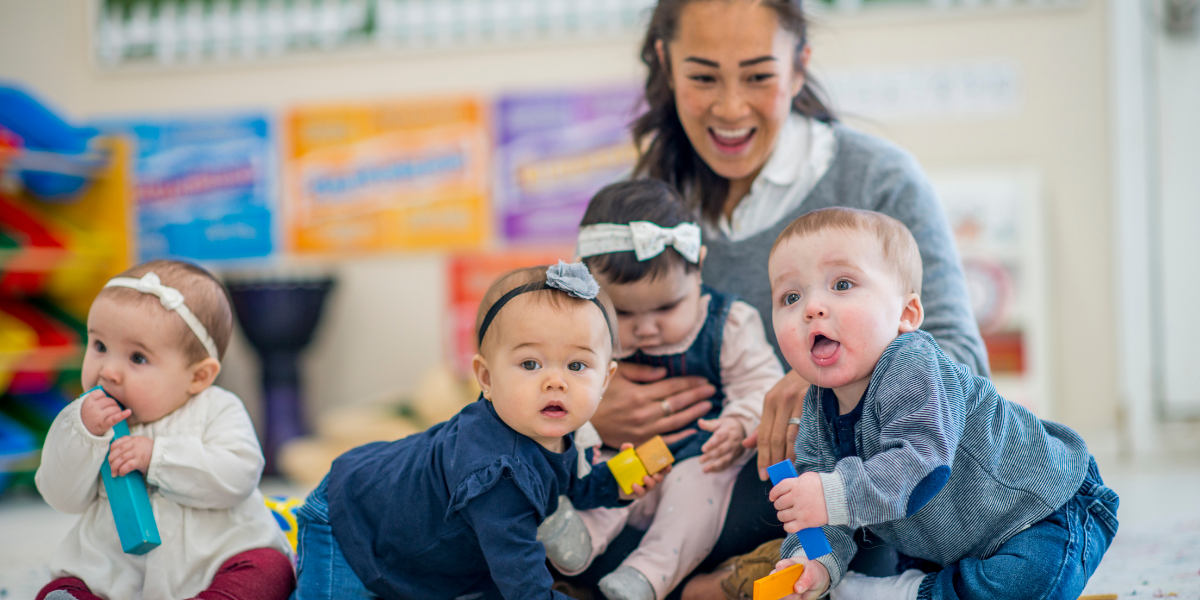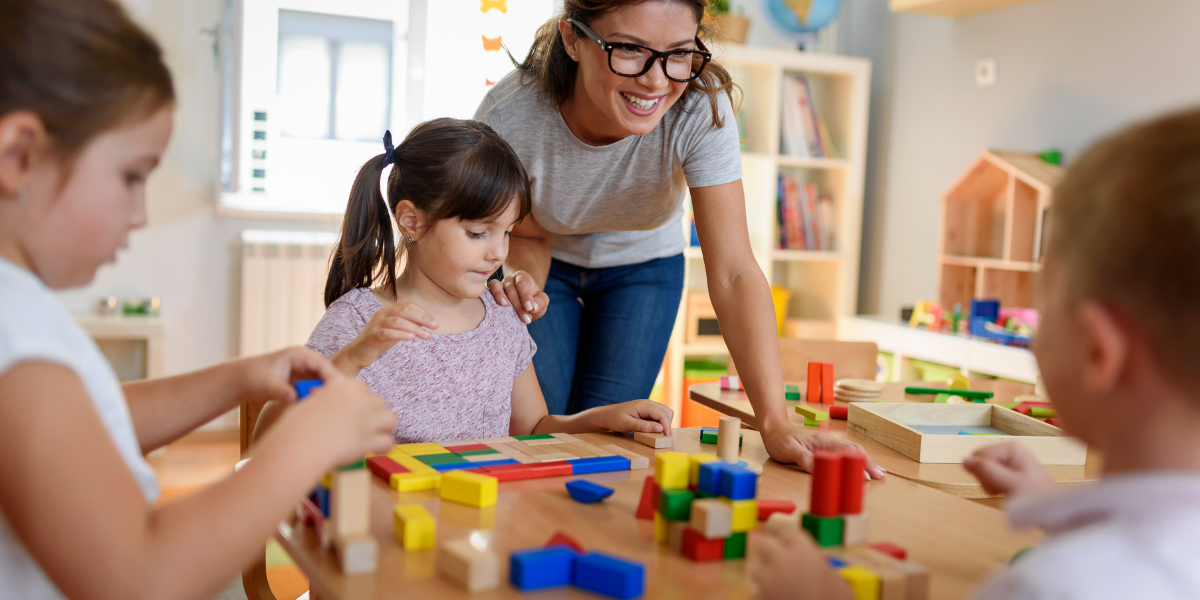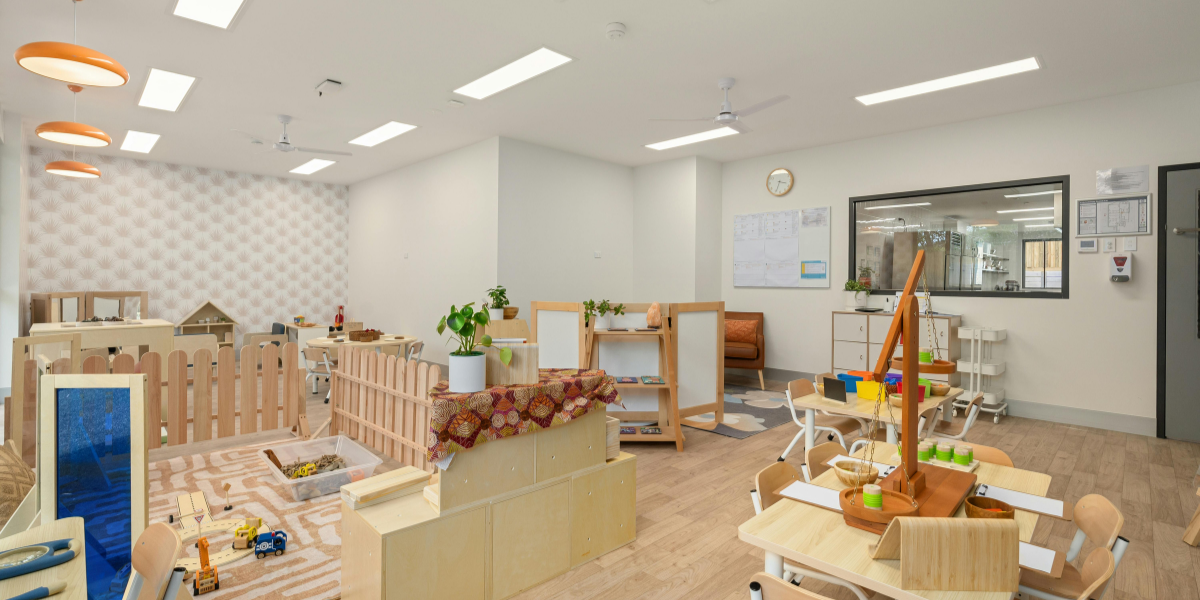Many parents wonder whether their child should attend daycare or preschool—and what the real differences are between the two. Both provide safe environments where children can learn, play, and grow. However, they serve slightly different purposes and age groups. At Chapter 1 Daycare in Calgary, we often help families decide which setting best suits their child’s stage of development and family schedule.
What is Daycare? Care and Learning Combined

Daycare programs are designed to support working families who need reliable childcare throughout the day. These programs focus on both safety and foundational learning through play-based experiences. At Chapter 1, our daycare environment is carefully structured to meet the needs of infants, toddlers, and young children through every stage of early development.
What Daycare Offers
Daycare centers generally care for children from infancy through preschool age, with flexible hours that match a parent’s workday. A licensed daycare emphasizes routines that make children feel secure—feeding schedules, nap times, and sensory-rich activities that encourage exploration and motor development.
Children benefit from daily socialization, exposure to language and music, and interactions that build empathy, cooperation, and curiosity. While academics are introduced gently through stories, art, and hands-on play, the main goal is to nurture confidence and independence.
Why Families Choose Daycare
For many Calgary parents, daycare is the first major step in their child’s early education. It allows infants and toddlers to form consistent routines while parents work, knowing their child is in a safe, engaging environment. Our team ensures that every day is balanced between care and meaningful learning—because for young children, play is learning.
What is Preschool? A Focus on School Readiness

Preschool is designed for children roughly between ages 3 and 5, often serving as the bridge between home or daycare and kindergarten. These programs emphasize structured learning—early literacy, counting, fine motor skills, and emotional regulation.
At Chapter 1, our preschool curriculum prepares children for the transition to formal schooling while keeping the joy of discovery at the center of every lesson.
What Preschool Offers
Preschool sessions are usually shorter than full-day daycare and may run only during the school year. Activities focus on early academic foundations—recognizing letters and numbers, understanding story structure, and following multi-step instructions. But just as importantly, children learn how to cooperate, share, and express themselves.
Through themed activities, songs, art projects, and guided play, preschoolers gain the skills they’ll need to thrive in kindergarten and beyond.
Why Families Choose Preschool
Families often choose preschool when their child is ready for a little more structure but still needs a nurturing environment. The focus shifts from meeting physical needs—like naps and feeding schedules—to fostering curiosity, problem-solving, and self-control.
Parents who already have children in daycare may transition them to a preschool program once they demonstrate readiness for more formal group learning.
Key Differences Between Daycare and Preschool
Although both daycare and preschool promote growth, their structure and purpose differ in a few key ways.
Age Range and Hours
Daycare accepts children from infancy up to early school age, providing full-day care year-round. Preschool typically serves 3–5-year-olds and may follow a school-year calendar, with half-day or part-time programs.
Curriculum and Focus
Daycare combines care with developmentally appropriate play. Activities support physical, emotional, and cognitive milestones. Preschool has a stronger emphasis on pre-academic skills and structured group learning.
Flexibility for Families
Daycare offers flexible scheduling to support working parents, while preschool programs often operate on fixed class times. Families who need consistent coverage tend to prefer daycare, while those seeking early classroom exposure choose preschool.
Teacher Qualifications
Both settings have trained educators, but preschool teachers often hold early childhood education credentials focused on pre-kindergarten learning outcomes. Daycare staff are trained in child safety, development, and daily caregiving routines.
Environment and Daily Routine
In daycare, routines revolve around care—mealtime, naps, and play. In preschool, the day is divided into learning blocks: storytime, group play, creative projects, and outdoor time. Each program’s environment reflects its purpose, and many centers—like ours—integrate both.
Chapter 1 Daycare: Where Care Meets Early Education
At Chapter 1 Daycare in Calgary, we blend the best of both worlds. Our licensed childcare center offers full-day care for infants and toddlers, along with age-specific preschool programs that prepare children for kindergarten.
We focus on developmental milestones at every stage—helping babies establish secure attachments, toddlers learn self-expression, and preschoolers build school-readiness skills. Our educators use gentle structure, play-based curriculum, and nurturing routines that support both emotional and cognitive growth.
For working parents, the convenience of full-day care combined with our commitment to early education makes Chapter 1 a trusted choice. Families often tell us they appreciate how we adapt to their child’s individual pace rather than rushing them through developmental stages.
How to Decide Between Daycare and Preschool
Choosing between daycare and preschool depends on your child’s age, your work schedule, and their readiness for structured learning. Here’s how families often decide:
-
Infants and Toddlers: Daycare provides essential care, comfort, and early stimulation.
-
Ages 3–4: Preschool introduces early academic and social skills in preparation for kindergarten.
-
Combination Programs: Centers like Chapter 1 Daycare offer integrated options, allowing children to grow within one consistent environment.
Ultimately, the best program supports your family’s rhythm and your child’s developmental stage. It should feel like an extension of home—safe, engaging, and filled with opportunities to explore.
Preparing for the Transition
Whether your child is entering daycare for the first time or graduating to preschool, transitions take time. Visiting the center together, meeting teachers, and establishing predictable routines can ease anxiety. Children feel secure when they know what to expect.
At Chapter 1, we support families through every stage of this journey—from helping babies adjust to group care, to preparing preschoolers for their next big step into kindergarten. With open communication and consistent structure, we ensure each child feels seen, supported, and confident.
When to Seek Additional Guidance
If you’re uncertain about your child’s readiness or notice persistent challenges—like frequent meltdowns, separation anxiety, or sleep disruptions—consult your pediatrician or an early childhood specialist. In some cases, underlying issues such as sensory sensitivities or language delays can influence behavior.
Our staff works closely with families to identify concerns early and connect them with trusted professionals when needed. Early support helps children thrive emotionally and socially, setting a strong foundation for lifelong learning.
FAQs
1. What age should a child start preschool?
Most children begin preschool around ages 3 or 4, depending on their social and emotional readiness.
2. Can infants attend daycare?
Yes. Many licensed centers, including Chapter 1 Daycare, accept infants as young as 6 weeks old, providing age-appropriate care and developmental activities.
3. Is preschool better than daycare?
Neither is “better.” It depends on your child’s age and family needs. Daycare offers full-day care, while preschool focuses on school preparation.
4. How do I know my child is ready for preschool?
Readiness signs include curiosity about learning, ability to follow simple directions, and comfort separating from parents for short periods.
5. Should I sleep train before daycare starts?
Yes, establishing a consistent sleep routine before daycare helps your baby adjust more smoothly to new schedules and nap times.

